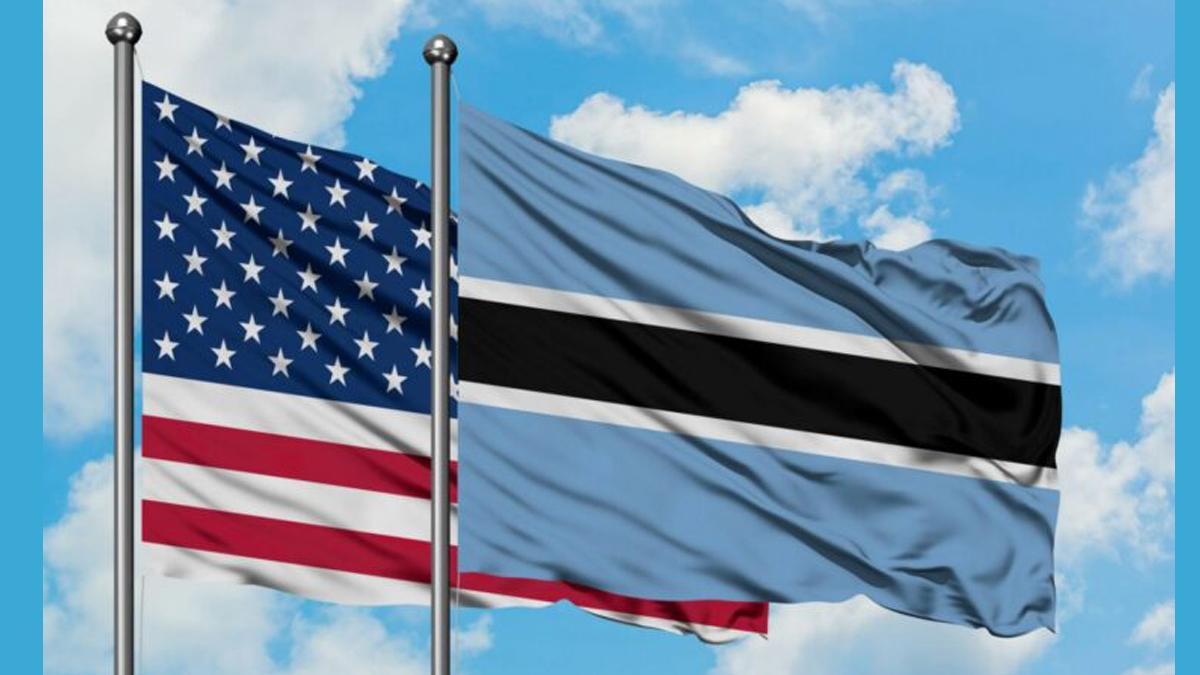Africa-Press – Botswana. Once celebrated as a stronghold of democracy and stability in Africa, Botswana is now displaying worrying signs of deterioration, as the nation grapples with economic and health challenges.
Botswana’s future well-being and prosperity are under threat. The country’s over-reliance on the diamond industry has resulted in a highly fragile economy. The lack of economic diversification and development of other key sectors is placing Botswana in a precarious situation.
Over-dependence on diamonds restricts the nation’s capacity to weather global fluctuations in the demand for diamonds. The export of diamonds makes up 80% of the country’s exports and one-third of government revenue. This dependency makes it highly exposed to economic fluctuation.
The inadequate investment in key industries such as agriculture, technology, and manufacturing has meant that the Botswana economy is not sufficiently geared for stable and sustainable development. The lack of diversification has significantly strained the economy, hindering its overall stability, trading power, and economic prowess.
Botswana is facing a crucial resilience test. Just last week, the President of Botswana, Duma Boko, announced a national public health crisis. With the country’s medical supply chain in ruins, hospitals overrun by patients, medical supplies in short supply, and surgeries postponed, the country’s health care system is in a state of collapse.
Overcrowded hospitals and medicine shortages have become increasingly common, especially in rural settings where non-essential procedures have been suspended and treatment for chronic conditions remains limited.
Mortality rates are rising, as is the resurgence of preventive diseases. Glaring shortfalls in healthcare access and provision in rural communities are increasingly difficult to ignore. Botswana is heading towards a widespread health emergency. Deficits to medical suppliers surpass seventy million dollars. An $18 million emergency funding has been leveraged to deal with the situation, and the military has been placed on standby to deliver essential medical supplies.
Botswana’s HIV response, once a global success, is faltering. In 2022, on the back of PEPFAR funding, Botswana achieved the UNAIDS’ 95-95-95 targets (95% of people living with HIV diagnosed, 95% of those on treatment, and 95% virally suppressed).However, the withdrawal of U.S. AID is causing severe damage to health initiatives, including the treatment and management of HIV. Botswana’s admirable record of dealing effectively with HIV is now in ruins. Opposition party leader, Dr. Alfred Madigele, has criticized the government for its poor planning in the fight against HIV-AIDS.
The current health crisis does not occur in a void. It is symptomatic of the structural fragility of Botswana’s political and economic systems. The highly majestic diamond industry, which was once at the heart of the nation’s prosperity, now threatens its economic well-being.
The country is now experiencing the downside of overdependency on this precious mineral. There has been a significant decline in global demand for diamonds over recent years. In 2024, there was a 27% decline in diamond production by government-owned De Beers Debswana, and further production cuts are forecast for 2025.
With the development of synthetic diamonds and the global slowdown in key markets, Botswana’s diamonds are losing their shine. With the diamond industry becoming more of a burden than an asset, Botswana needs to revitalise its economic model.
iol.co
For More News And Analysis About Botswana Follow Africa-Press






